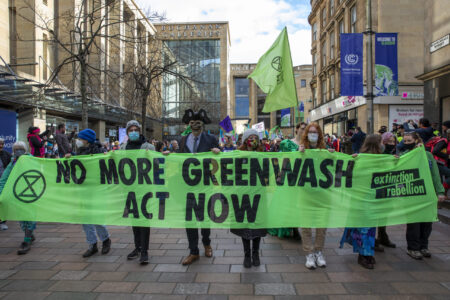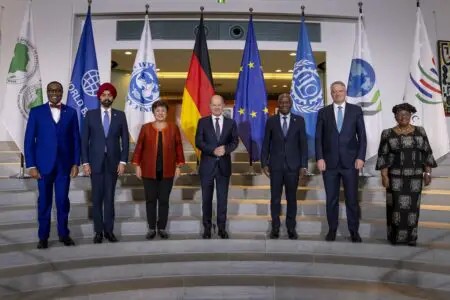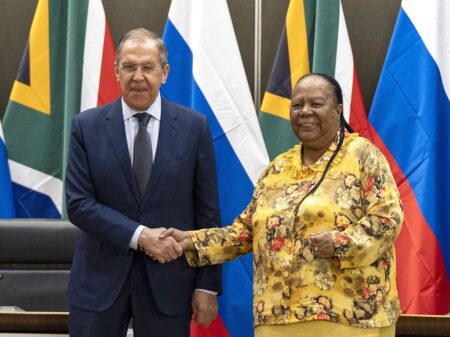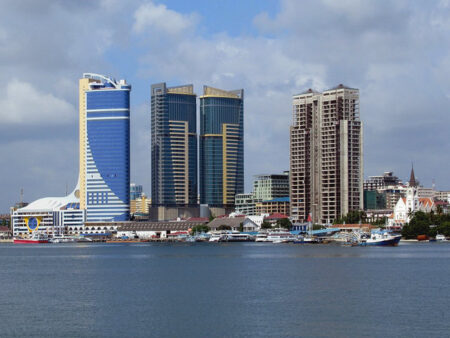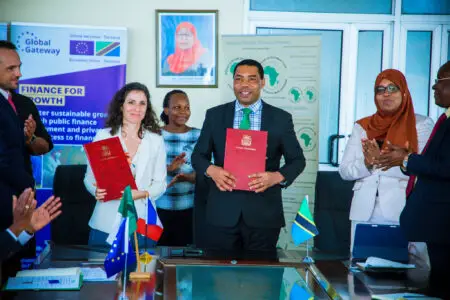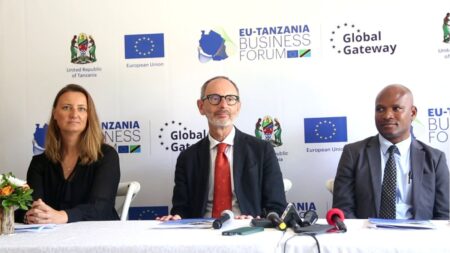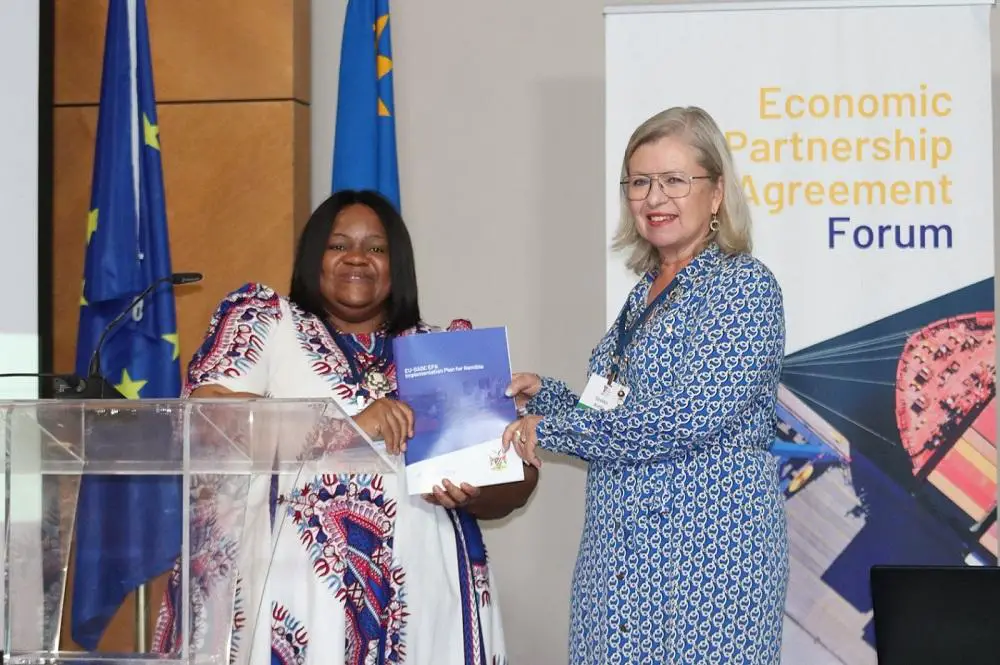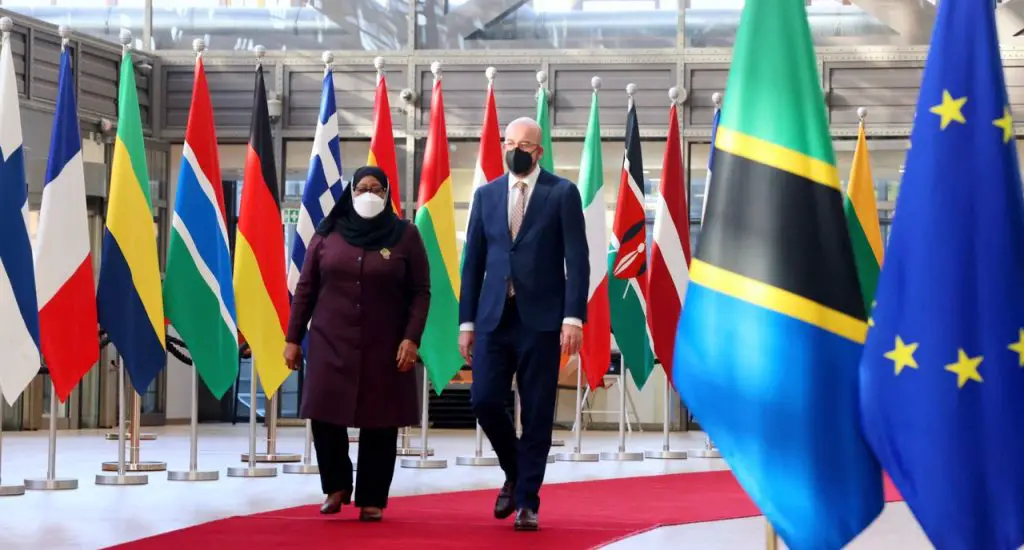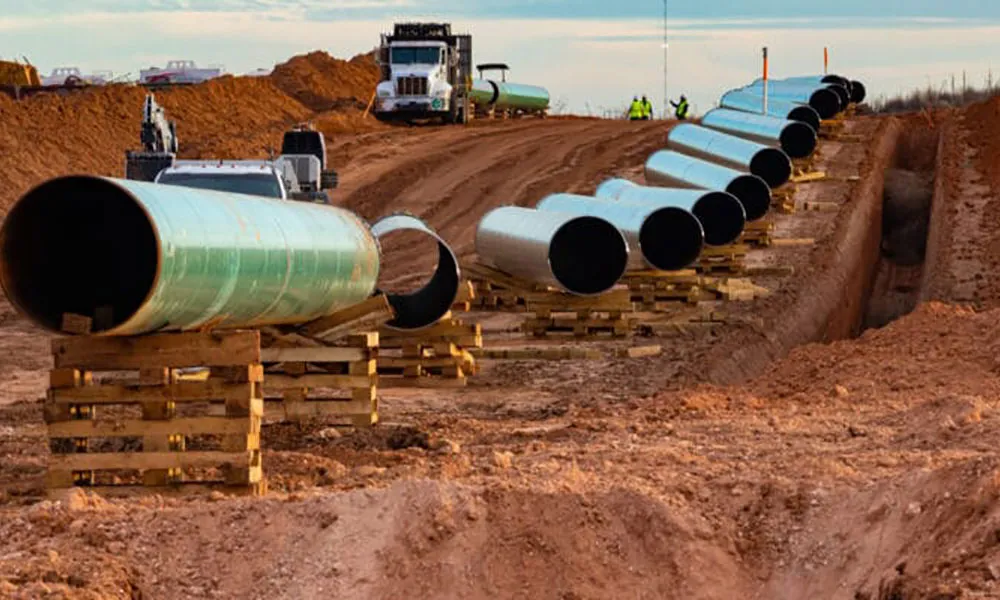- Africa’s new dawn: the rising role of digital and AI in agriculture
- Can Dangote Refinery Transform Africa Energy Ambition
- Gallup Survey: 80 per cent of Kenyan Workers Are Disengaged and Seek New Opportunities
- Madagascar Man Freed from 5KG Tumor After 15-Year Struggle
- How women in Africa are perceived and treated
- Sugar consumption in Kenya to Increase to 1.23 Million Tonnes
- Can Somalia and Turkey Oil deal Bring Change in Somaliland
- Remittances to Kenya dropped to $371.6 million in June, marking a six month low
Browsing: EU
As COP28 unfolds with its myriad discussions and commitments, a less visible but equally critical issue looms on another continent – the pervasive problem of greenwashing in Africa. From the corridors of corporate power to the burgeoning startup ecosystem, greenwashing emerges as a misleading marketing tactic and a significant barrier to genuine environmental and social progress in Africa.
In Africa’s corporate sector, greenwashing has become a strategic tool used by both corporations and governments to cover up environmentally detrimental practices. This issue is acutely critical in a continent where environmental conservation is not just a matter of policy but survival.…
- For African universities, governments and businesses, 5G Tech Spaces are part of the solution to enable Africa to leapfrog with clean innovation.
- Africa’s climate finance inflows remain very low, at 3 percent of global climate finance.
- The continent requires as much as $2.8 trillion through 2030 to implement its climate commitments.
Africa’s most renowned universities are keen to be at the forefront of Research, Innovation and Outreach (RIO) of technologies, products, services and operating models that reduce CO2 emissions and help attain Net Zero Emissions (NZE).
To achieve this, the gap between rhetoric and action needs to be reduced, if we are to have a fighting chance of reaching Net Zero by 2050 and capping the rise in global temperature at 1.5 °C in full attainment of the Paris Agreement.
Africa produces only about 4 percent of the world’s emissions, but is disproportionately vulnerable to the impact of climate change. …
- In Berlin, German Chancellor Olaf Scholz says his country will invest 4 billion euros in Africa’s green energy until 2030.
- Scholz made the green energy plans after meeting African leaders and heads of international organizations during the G20 Compact with Africa conference.
- Compact with Africa was initiated by Germany in 2017 during its presidency of the G20 to improve conditions for sustainable private sector investment and investment in infrastructure in Africa.
The government of Germany has pledged to invest $4.37 billion (4 billion euros) in Africa’s green energy until 2030. German Chancellor Olaf Scholz made the announcement at a press conference in Berlin after meeting African leaders and heads of international organisations including the President of the African Development Bank (AfDB) Group Dr Akinwumi Adesina, during the G20 Compact with Africa conference.
The Compact with Africa was initiated by Germany in 2017 during its presidency of the G20 to improve …
- As a signatory to the ICC, South Africa is under a legal obligation to heed the warrant and arrest the leader of Russia.
- The European Union, as well as the United States, have all sent diplomatic envoys to South Africa urging the administration in Pretoria to broker some kind of peace talks.
- South Africa’s Minister of International Relations and Cooperation Naledi Pandor raised the issue of double standards in the ICC.
South Africa has extended an invitation to Russia’s President Vladimir Putin to attend the BRICS Summit later this year in South Africa amidst an arrest warrant issued by the International Criminal Court (ICC) on Putin for the invasion of Ukraine.
BRICS is made up of the world’s largest emerging economies of Brazil, Russia, India, China, and South Africa. The five countries will be holding their 15th annual summit in Durban South Africa later this year.
Following the issuance of …
- In the year before Samia’s administration, Tanzania’s FDI closed 2020 at $3.16 billion though the Covid-19 pandemic might have impacted the inflows.
- Between March 2021 and February 2023, the number of registered funded projects rose from 455 to 575, equivalent to a 26 percent increase.
- Investment expansion in Tanzania trickled down towards the community during the period under review, and job creation grew from 61,900 to 87,187.
Over the past six years, Tanzania investment sector has gone through a somewhat cyclic pattern. Former President John Magufuli’s polices were deemed unfriendly by investors forcing capital to flee to more predictable and profitable markets.
However, in the last two years, there has been a wind of change brought about by President Samia Suluhu who has taken a pro-business approach focused on improving international business and diplomatic relations in the region and across the world.
According to data from Tanzania Investment Centre (TIC), …
- Tanzania signs 161.47 million US dollars to implement Kakono HPP in Lake Zone
- European Union (EU) to chip in additional 35 million Euro for Kakono HPP
- Kakono HPP will take five years to complete, feature a primary school, health centre
The government of Tanzania has secured funding for the Kakono Hydropower Project (Kakono HPP). The project is in line with the country’s Third Five-Year Development Plan (FYDP III) and aligns with President Samia Suluhu’s plan to foster a competitive industrial economy.
The Lake Zone, in the north-western part of Tanzania, is one of the country’s highest fossil fuel consuming region due to the low coverage by the national electricity grid. The region uses diesel generators making the region expensive for investors and residents.
Funding a US$325 million power project in E. Africa
Also Read: French Development Agency provides $30 million for African SMEs
With assistance from the African Development Bank …
- The European Union Investment Bank (EIB) have agreed with commercial banks to unlock a whole new business financing valued at around $580 million.
- The EU is optimistic about the government’s efforts to attract businesses and support investment
- Tanzania Development Vision (TDV) 2025 indicates that about 54.3 percent of Tanzania’s small, medium and micro enterprises (MSMEs)
Over the past two years, President Samia’s administration has not only brought back confidence to investors who left Tanzania but attracted new ones and reinforced the old partners, including the United States.
Tanzania is walking confident with almost $1 billion in investment from various companies from the US, thanks to President Samia’s US visit in April 2022.
The European Union Investment Bank (EIB) and other investors have agreed with commercial banks in Tanzania to unlock a whole new business financing valued at around $580 million.
The support is breathing life into additional capital to small …
According to the statement, the Forum will have several interactive engagements and presentations focusing on opportunities for Namibian and EU traders, agriculture and agro-processing, manufacturing, and trade facilitation and logistics.
The ministry of trade serves as the coordinator for the plan’s initial goal, which is to provide improved coordination and cooperation across institutions and organizations addressing areas related to EPA implementation.
It is also concentrated on establishing and enhancing the performance of important institutions involved in EPA implementation.
Making a case for technical support to strengthen the necessary legal, institutional, and infrastructure frameworks for Namibia’s EPA implementation is the third point of emphasis.…
While the government of Tanzania has not listed specific projects that the Global Gateway grant will finance, the country already has several green initiatives underway and is leading the region in digital transformation.
The EU envisions that through the grant funding various solutions will be realized under five main banners; green transition, digital transition, accelerating sustainable growth and decent job creation, strengthening health systems and improving education and training
In this regard, the EU is of the view that tackling the global challenge of climate change, it must work with Africa to maximise the benefits of the green transition and minimise threats to the environment in full compliance with the Paris Agreement, as stated in the official EU statement.…
The ministry argued that the oil pipeline project is being implemented strictly on international safety, environmental and social aspects, including the Human Rights Impact Assessment (HRIA).
The EACOP project has managed to amass at least US$20 billion, benefiting the two neighbouring nations immensely. That’s why Tanzania is stern on highlighting key issues regarding human rights and environmental risks.
“A dedicated HRIA was undertaken as part of the project implementation process. The HRIA assessed and put in place measures for addressing the potential adverse of the project on the human rights enjoyment,” the statement pointed out.
According to the EU Parliament statement, at least 100,000 people have been forced to move out of their homes to leave the path for the pipeline.…





